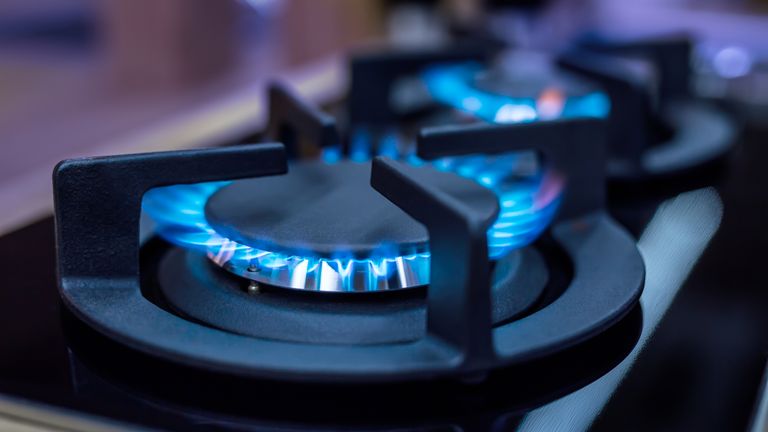Wholesale gas costs reached new uncharted territory on Wednesday as financial markets fret over the impact of inflation on the global recovery from the coronavirus crisis.
The gas contract for next-day delivery in the UK breached £3/therm for the first time on Wednesday morning and was as high as £3.55 at one stage before easing back following comments from Russian president Vladimir Putin.
Market experts said at the peak, the surge represented a rise of 27% on the day.
The price later retreated and was 17% lower at 231p by the afternoon but this was still multiple times higher than typical levels of around 50p seen over recent years.
Government fund to help ease energy expenseThe fall was attributed to comments by Mr Putin that Russia was boosting gas supplies to Europe.
AdvertisementTom Marzec-Manser, the lead European gas analyst at commodity price agency ICIS, said: “Natural gas trading today has been ridiculous, swinging up and down with astonishing vigour.”
It came as National Grid chief executive John Pettigrew warned that Britain would face a tighter margin between electricity supply and demand than in recent years this winter.
More from BusinessIn comments reported by the Financial Times, Mr Pettigrew also cautioned on the impact of high gas prices for consumers and businesses and, while insisting there was enough electricity and gas capacity to meet demand, said these would need to be monitored as “things can happen during the winter”.
A toxic cocktail of headwinds for costs are already being reflected in many business and household bills – with warnings of far worse to come just as the COVID crisis £20 a week Universal Credit uplift is stripped away from those most in need.
Energy prices, which went up by 12% for many households this month when the price cap on default tariffs was adjusted to reflect higher wholesale prices, could rise even more sharply when the next review takes effect.
One economist warned on Tuesday that the current average bill under the cap could pass £1,700 – a rise of 33% – from April if it was to fully reflect the surging costs of raw energy.
There is no sign of respite because the gas contracts for delivery over the winter months have exceeded £4/therm.
Factors behind the unprecedented prices include low gas stocks, lower supply from Russia, colder temperatures, lower wind output and strong competition from Asia for liquefied natural gas.
Oil prices are also at three-year highs.
Northern hemisphere economies are bearing the brunt of the price hikes as they head towards the coldest months of the year.
Fears of surging inflation – also a consequence of costs rising because of worker shortages and supply chain difficulties – gripped European stock markets on Wednesday.
The FTSE 100 in London was trading 1.5% lower by lunchtime while the German DAX, CAC in Paris and Italy’s MIB were all down by just under 2% – though the indices all clawed back some of their losses later.
The S&P 500 in New York was more than 1% lower in early trading – but it also regained much of the ground subsequently.
Neil Wilson, chief markets analyst at Markets.com, said the rising gas price levels globally were harming risk appetite and fuelling worries that economies would stagnate at a time of soaring costs.
He said: “Inflation/stagflation, supply chain problems, the US debt ceiling, an energy crisis as natural gas prices soar to new records in Europe and the UK, tighter monetary policy from central banks, worries about the Chinese property sector – all swirling around equity markets this week and not going away any time soon.”
The chancellor Rishi Sunak and Bank of England believe the energy-driven inflation surge will be “transitory” – that it will eventually wind down of its own accord as the market adjusts to supply and demand constraints.
Regulator Ofgem and industry body Energy UK did not respond to a request for comment from Sky News about the latest price spike.
Listen and subscribe to The Ian King Business Podcast here.
